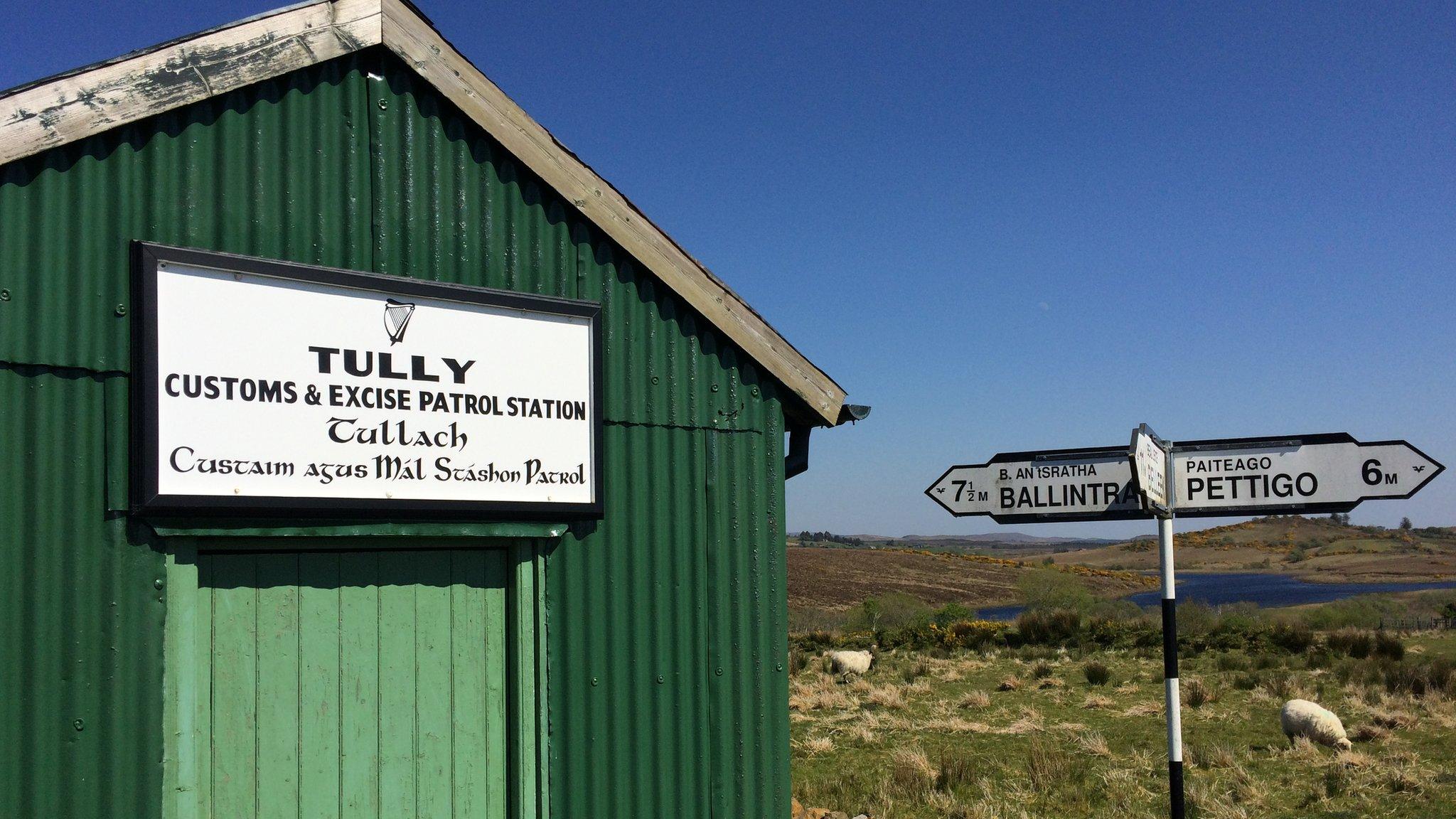Brexit: Up to 8% of cross-border freight 'could be subject to checks'
- Published
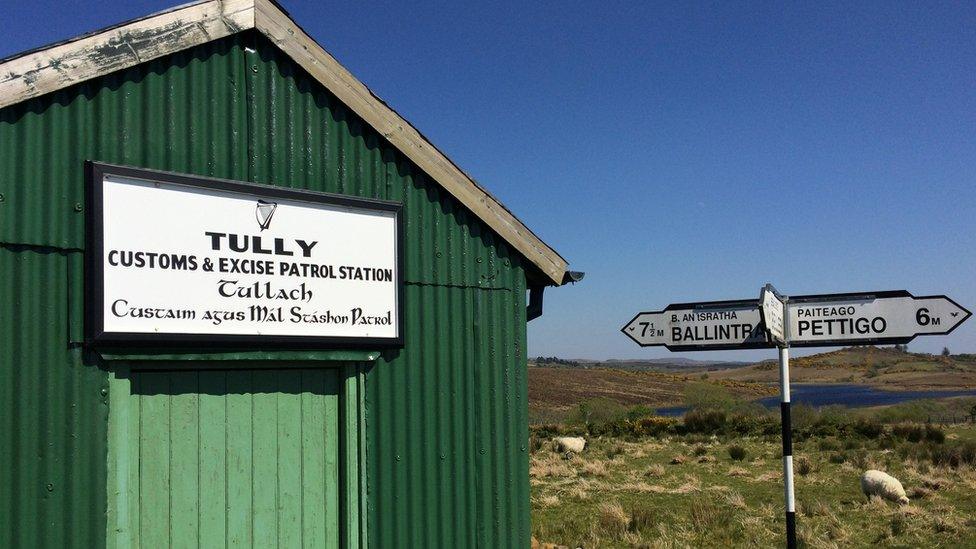
The British and Irish governments and the EU have all said they do not want a "hard border"
The head of Ireland's customs authorities has said up to 8% of freight crossing the border will have to be subject to checks after Brexit.
Revenue commissioner Liam Irwin was giving evidence to the Irish parliament's finance committee.
He said the authorities would try to minimise customs controls but they are required under EU law.
It would mean checks on 6% to 8% of freight, mainly on documents but with a "small number" of physical inspections.
'Trade facilitation posts'
Mr Irwin said checks would not happen at the border but at "trade facilitation posts" which would be "10 or 15 kilometres back from the border."
He also said there would also be some form of random, or risk-based, customs checks carried out by mobile units.
The commissioner emphasised that customs declarations would happen electronically, and most transactions would be immediately approved.
He said there would not be a return to a pre-1992 situation when there were customs posts at the border.
Seamus Leheny, from the NI Freight Transport Association, described the plans as "quite concerning to those involved in moving goods cross-border".
"On average we're looking at a minimum 6,000 HGV movements cross-border on a daily basis so if we're looking at 8% of those vehicles having to be checked, there's potentially 500 to 600 vehicles actually having to stop and have goods looked at," he said.
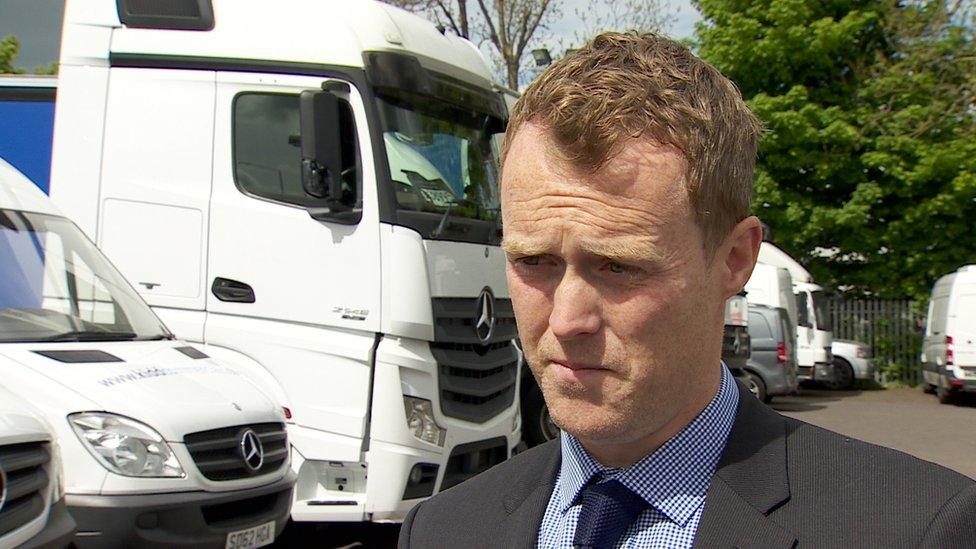
Seamus Leheny described the plans as 'quite concerning to those involved in moving goods cross-border'
"These costs would obviously have to be passed on, because there would be consequences with delays and journey time reliability.
"If you have 500 to 600 lorries having to stop every day, those delays could be anything from five minutes, half an hour.
'Costs'
"It depends really on paperwork checks or maybe physical inspection of goods and the running costs for a 44-tonne lorry which typically travels cross-border is £1 a minute and those costs have to be covered by someone."
Sinn Féin's finance spokesperson, Pearse Doherty, said border communities would be especially affected.
"Obviously, any restrictions on traffic and consignments entering and leaving the north will have a devastating impact on the economies both north and south," he said.
"Businesses on both sides will suffer greatly should what was revealed by revenue come to pass and that is simply stating an undeniable fact."
The UK government has said it intends to leave the EU Customs Union as part of Brexit but is seeking new customs arrangements.
Hard border
The EU, the UK government and the Irish government have all said they do not want a "hard border".
Mr Irwin said Irish customs authorities are not currently in "any form of discussion" with the UK.
He said that the number and value of customs declarations would increase by a factor of 10 as a result of Brexit.
His organisation is also looking at how "small local traders" can be facilitated.
- Published14 May 2017
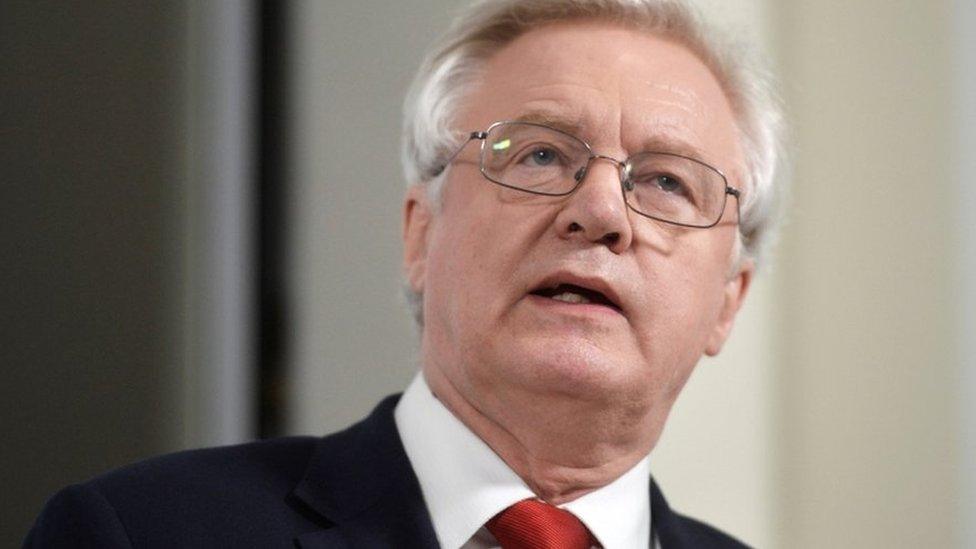
- Published12 May 2017
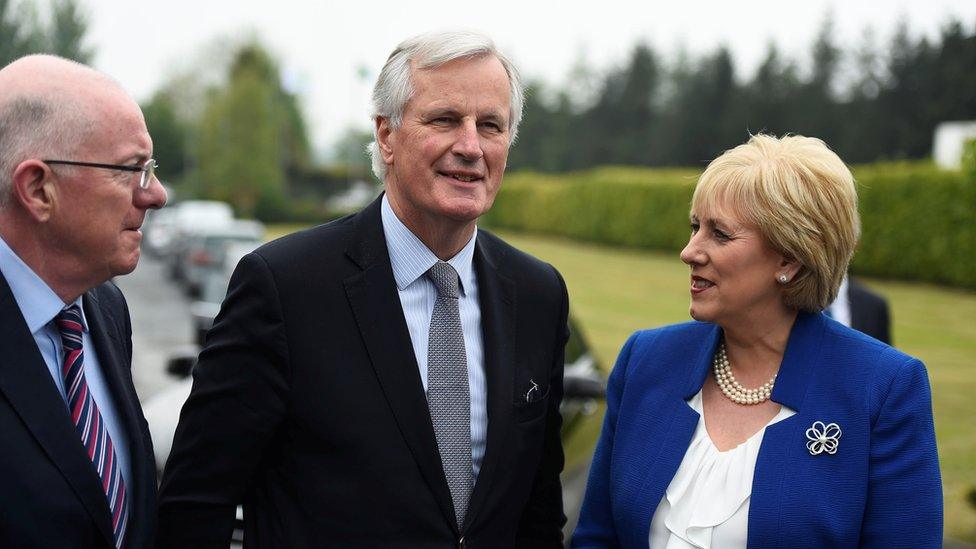
- Published4 May 2017
